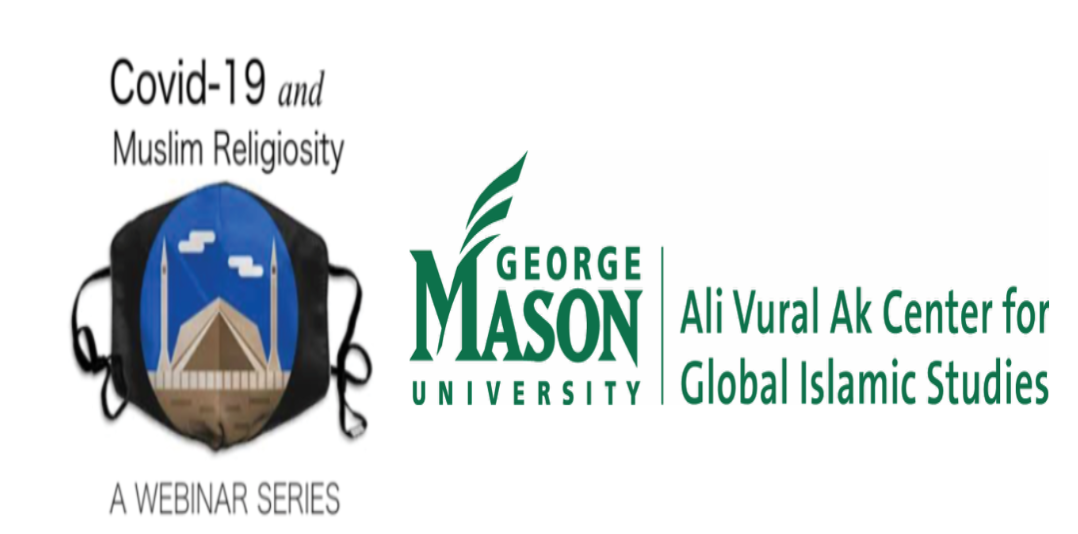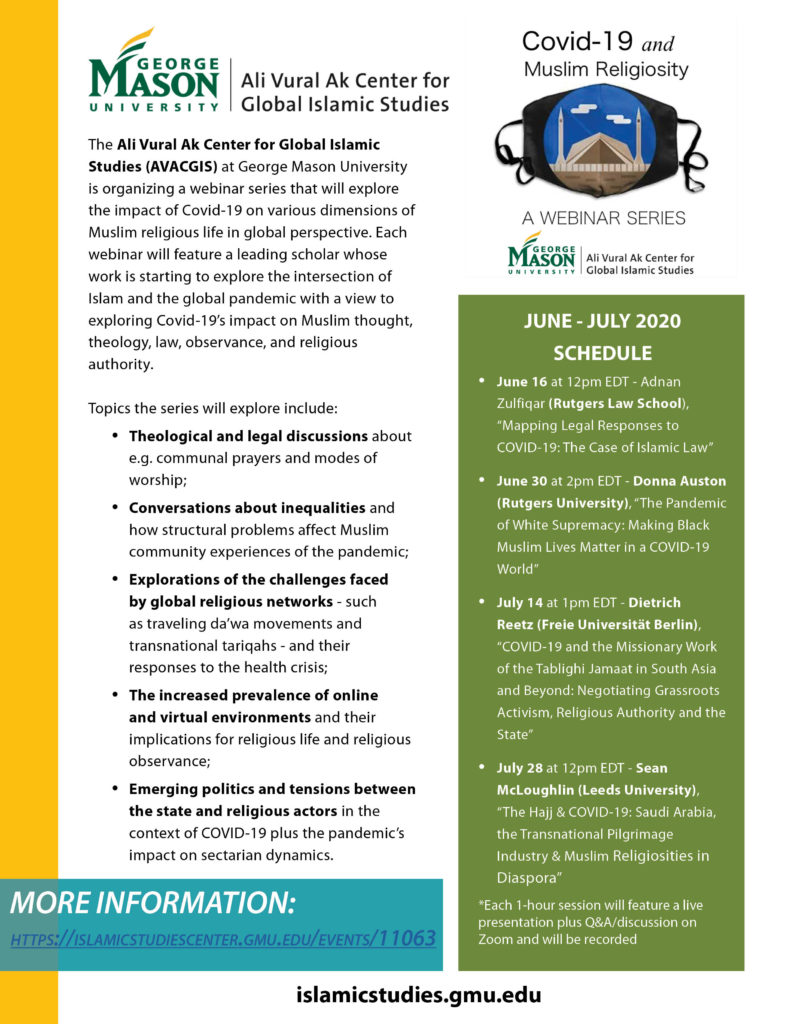
The Ali Vural Ak Center for Global Islamic Studies (AVACGIS) at George Mason University is organizing a webinar series that will explore the impact of Covid-19 on various dimensions of Muslim religious life in global perspective. Each webinar will feature a leading scholar whose work is starting to explore the intersection of Islam and the global pandemic with a view to exploring Covid-19’s impact on Muslim thought, theology, law, observance, and religious authority.
Topics the series will explore include:
- Theological and legal discussions about e.g. communal prayers and modes of worship;
- Conversations about inequalities and how structural problems affect Muslim community experiences of the pandemic;
- Explorations of the challenges faced by global religious networks—such as traveling da’wa movements and transnational tariqahs—and their responses to the health crisis;
- The increased prevalence of online and virtual environments and their implications for religious life and religious observance;
- Emerging politics and tensions between the state and religious actors in the context of Covid-19 plus the pandemic’s impact on sectarian dynamics
Each 1-hour session will feature a live presentation plus Q&A/discussion on Zoom. Video and audio recordings of each speaker’s remarks will also be made available later for asynchronous access.
Initial Speakers
June 16, 2020 – 12:00 PM EDT
Adnan Zulfiqar (Rutgers Law School), “Mapping Legal Responses to Covid-19: The Case of Islamic Law”
June 30, 2020 – 2:00 PM EDT
Donna Auston (Rutgers University), “The Pandemic of White Supremacy: Making Black Muslim Lives Matter in a Covid-19 World”
July 14, 2020 – 1:00 PM EDT
Dietrich Reetz (Leibniz-Zentrum Moderner Orient & Free University, Berlin), “Covid-19 and the Missionary Work of the Tablighi Jamaat in South Asia and Beyond: Negotiating Grassroots Activism, Religious Authority and the State”
July 28, 2020 – 12:00 PM EDT
Seán McLoughlin (University of Leeds), “The Hajj & Covid-19: Saudi Arabia, the Transnational Pilgrimage Industry & Muslim Religiosities in Diaspora.”


